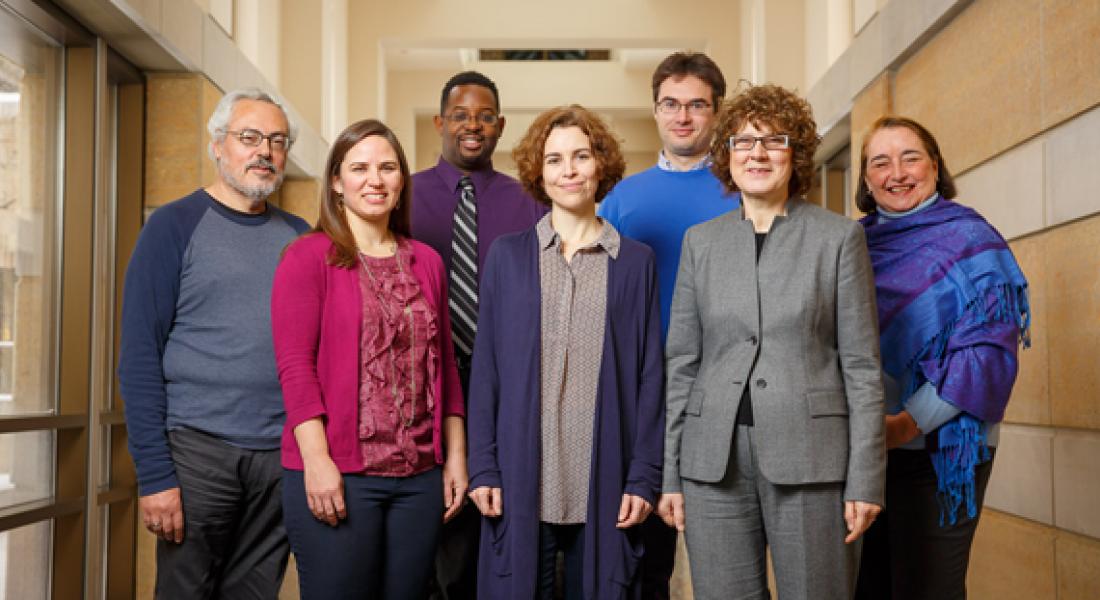
Five new visiting fellows bring their diverse backgrounds and academic pursuits to the Kellogg Institute this semester. With disciplines ranging from political science and economics to theology and law, the new fellows will conduct independent and collaborative research related to core Kellogg themes of democracy and human development.
- Ana Arjona, a political scientist at Northwestern University, studies political violence. Extensive fieldwork in her native Colombia informs her Kellogg project, an analysis of civilian choice in contexts where non-state armed groups operate. In particular, she researches civilians’ decisions to flee and become refugees or displaced persons, join armed groups, cooperate with combatants, or resist them.
- Simona Beretta, an economist at the Università Cattolica del Sacro Cuore in Milan, aims to foster dialogue between Catholic social teaching and economic enquiry with her research. Her Kellogg project explores the transformative effect that “love in truth” has on development at both micro and macro levels, particularly in the context of community-based development policies.
- Maria Clara Bingemer, a noted Brazilian theologian based at Pontifícia Universidade Católica do Rio de Janeiro (PUC), is the first scholar to hold the Brazilian Fulbright Distinguished Chair in Democracy and Human Development at Kellogg. Bingemer will collaborate with Faculty Fellow Peter Casarella on the book project “God in America,” which aims to open a dialogue between Latin American and Latino/a theology.
- Luigi Crema of the Università degli Studi in Milan, a legal scholar who holds a joint appointment in the Law School, will assess the current uses and potential of the concept of solidarity in international law. He aims to investigate problematic developments in contemporary international law as well as address the tension between laws based on state sovereignty and the cooperative efforts of the international community.
- Olunkunle P. Owolabi, a Notre Dame PhD in political science who was a 2008–09 dissertation year fellow, returns to Kellogg from Villanova University. A Canadian with roots in both Nigeria and Trinidad, Owolabi argues that significant differences in educational attainment and postcolonial governance can be explained by different modes of extractive colonialism. His book project is based on extensive research in Western Europe, West Africa, and the Caribbean.
The new visiting fellows join two scholars who hold academic-year appointments:
- Kristin McKie, a scholar of government and African studies at St. Lawrence, is working on a book manuscript that explores how constitutional limits on executive power become institutionalized in new democracies, especially in relation to levels of party competition.
- George Tsebelis, a political scientist at the University of Michigan and native of Greece, is exploring questions related to constitutional choices and their potential outcomes on institutions, growth and welfare, and individual and human rights in both democratic and nondemocratic countries.
Guest scholars Mark Christensen, Stefanus Hendrianto, SJ, and Kiwoong Yang are also in residence at Kellogg this academic year.
Contact: Denise Wright, Program Coordinator, dwright1@nd.edu or 574-631-8523





